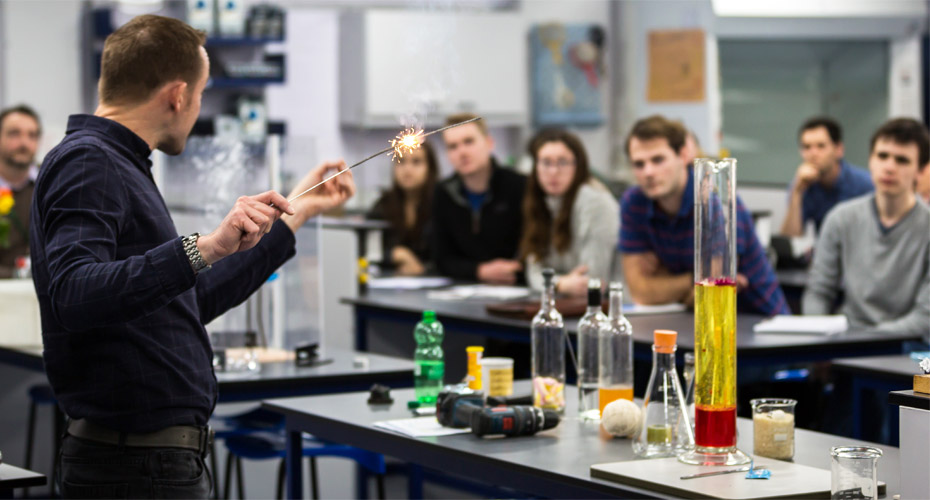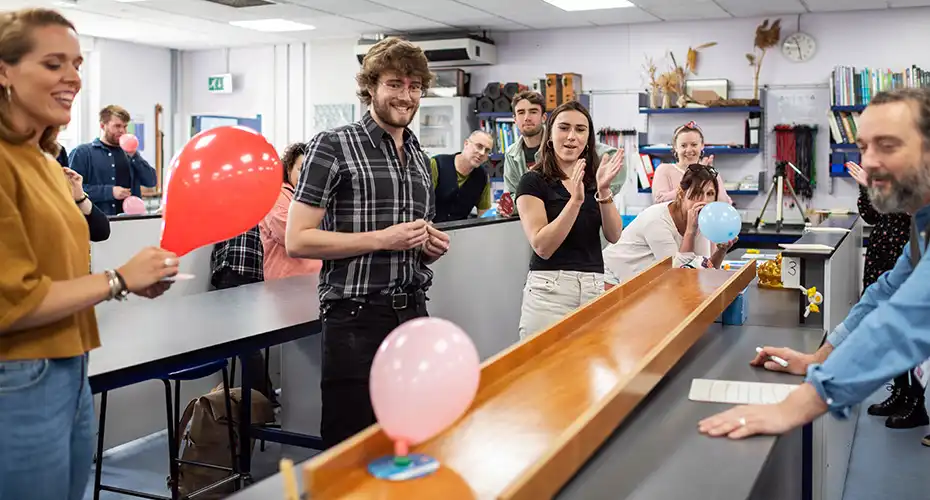Our unique approach to Initial Teacher Education is praised by Ofsted and provides fantastic opportunities for trainees to achieve through our highly original Exeter Model of Initial Teacher Education. The programme runs over three terms and provides a carefully phased development of trainees’ independence as teachers.
Vibrant community
By learning on campus for most of the first term you have access to the tools needed to rapidly build professional knowledge and confidence ready for your work in school placements. You also benefit from the opportunity to build friendships and become part of a community of trainees and teachers who are passionate about education and will support you during your course and beyond.
Facilities and support
The Science PGCE is primarily taught in two laboratories that also open into a single large teaching space. These labs are well-equipped and designed to be similar to school laboratories, providing an excellent space in which to learn to teach whilst on campus and supported by a dedicated PGCE science technician.
You’ll have access to a range of support, including a personal tutor, materials available through our online learning environment including lecture notes, presentations, film clips and reading materials, and access to the University’s wellbeing and support services. We carry out a detailed skills audit with every trainee so we understand your development needs and can personalise elements of training to strengthen the skills you need to excel as a teacher.
Campus-based modules are taught at the School of Education at the St Luke’s Campus in Exeter, which offers an excellent range of specialist facilities and the UK’s largest Education library.
Research-led teaching
All our tutors have real-world experience as teachers. They also lead and innovate: our tutors have written textbooks for trainee teachers and school pupils, advised government, led subject networks and are active educational researchers.
You will benefit from our active research culture, which promotes the sharing of ideas and knowledge to encourage innovation. Our research centres provide a focus for research and discussion for academic staff, researchers and practitioners and organise seminar series, outside speakers, conferences and other events.
The PGCE Science team’s current research interests lie in the areas of science education including students’ use of mathematics within science, Science and STEM education policy and its impact on practice in schools and the impact of social disadvantage on learners.



.webp)










